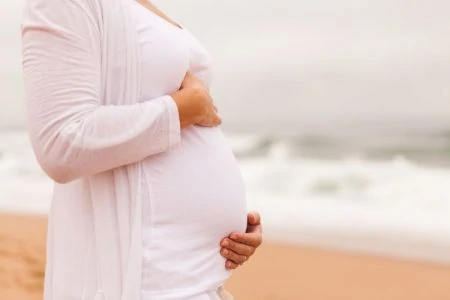We are diving into the hard numbers regarding pregnancy and alcohol consumption. This guide covers prevalence rates, the risks of early exposure, and the realities of Fetal Alcohol Spectrum Disorders (FASD), along with actionable advice for those who may have slipped up before seeing that positive test result.
Key Facts About Drinking While Pregnant
- No amount of alcohol is considered safe during pregnancy by the CDC or APA.
- Globally, nearly 10% of women consume alcohol while pregnant.
- Early exposure (first 29 days) increases miscarriage risk by 37%.
- Fetal Alcohol Spectrum Disorders (FASD) affect approximately 7.7 out of every 1,000 people worldwide.
Can You Have a Glass of Wine While Pregnant?
The short answer is no. Major health organizations, including the American Pregnancy Association (APA) and the Centers for Disease Control and Prevention (CDC), state that no amount of alcohol is safe during pregnancy (1). This restriction applies to all types of alcohol, including wine, beer, and liquor.
Alcohol easily crosses the placenta and can impact the developing baby. Drinking while pregnant increases the risks of miscarriage, stillbirth, and lifelong behavioral or physical issues known as fetal alcohol spectrum disorders (2).
35 Drinking While Pregnant Statistics and Facts
To understand the scope of this issue, we have gathered 35 facts covering global usage, early pregnancy risks, long-term effects, and FASD data.
Prevalence of Alcohol Use in Pregnancy
Despite the warnings, alcohol consumption remains a global issue among expecting mothers. Here is a breakdown of how common drinking during pregnancy is around the world.
- Global prevalence: Researchers estimate the average global prevalence of alcohol consumption during pregnancy is 9.8% (3).
- U.S.A. numbers: In the United States, about 11% of pregnant women between ages 15 and 44 reported drinking in the past month. Between 2018 and 2022, roughly 5% of pregnant women aged 18 to 49 engaged in binge drinking.
- Highest rates in Ireland: Ireland reports the highest rate of drinking during pregnancy, with approximately 60% of pregnant women consuming alcohol at some point.
- Belarus statistics: Belarus holds the second-highest rate, with an estimated 46.6% of women drinking during pregnancy.
- Denmark statistics: Denmark also sees high usage rates, estimated at 45.8% among pregnant women.
- United Kingdom usage: About 28% of pregnant women in the U.K. consume alcohol during their pregnancy (4).
- Sub-Saharan Africa: The prevalence of alcohol consumption among pregnant women in this region is approximately 22.8%.
- Lowest prevalence: Countries with strictly zero percent reported alcohol use during pregnancy include Oman, United Arab Emirates, Saudi Arabia, Qatar, and Kuwait.
- Mexico statistics: Mexico has a relatively low estimated prevalence, with only 1.2% of women consuming alcohol while expecting.
Alcohol Use in Early Pregnancy
Many women unknowingly consume alcohol before they realize they are pregnant. The following facts highlight the risks associated with drinking during those crucial first weeks.
- Conception period drinking: While only 10% drink throughout pregnancy globally, about 50% of women consume alcohol during the conception period (5).
- Miscarriage connections: Alcohol causes oxidative stress and hormone fluctuations, which can interfere with the uterus preparing for a baby, potentially increasing miscarriage risks.
- Peak risk window: Alcohol use is strongly associated with miscarriage between weeks five and ten, with the risk peaking specifically at week nine.
- First 29 days: Women who drink during the first 29 days of pregnancy have a 37% higher chance of miscarriage compared to non-drinkers, regardless of whether they had one drink a week or more.
- The “unknown” period: Advice varies on drinking before a positive test. Some groups say avoid it entirely (6), while others like Tommy’s suggest not panicking over small amounts consumed before you knew (7).
- First trimester physical impact: Drinking in the first 12 weeks is linked to abnormal facial features, central nervous system issues, and growth problems (8).
- Cognitive severity: Studies suggest that babies exposed to alcohol earlier in pregnancy may face more severe cognitive disorders than those exposed later (9).
- Conflicting data: A 2020 Harvard study noted that low alcohol consumption in the first trimester did not significantly increase risks for high blood pressure or premature birth, contradicting some stricter guidelines (10).
Long-Term Effects of Drinking While Pregnant
Alcohol exposure in utero can cause lasting issues that extend well beyond birth. Here are nine significant long-term effects that can impact a child’s life.
- Academic struggles: Fetal alcohol syndrome often leads to learning challenges, specifically requiring extra support in math and reading (11).
- Physical development issues: Prenatal alcohol exposure can damage the development of bones, muscles, and vital organs like the heart and kidneys.
- Attention deficits: Affected children often struggle with memory and attention span, making traditional educational settings difficult to tolerate.
- Emotional regulation: Kids with FASD frequently have trouble controlling impulses and managing emotions, which impacts social relationships (12).
- Facial abnormalities: Physical signs include a smooth philtrum (the ridge between the nose and lip), a thin upper lip, and small eye openings.
- Growth deficiencies: Children may experience stunted growth, including a smaller head circumference and lower body weight.
- Common birth defects: FASD is linked to specific defects such as hearing loss, cleft lip, and heart complications (13).
- Daily living struggles: Routine self-care tasks like dressing or preparing meals can be significant hurdles for those with severe FASD.
- Adulthood challenges: Without support, adults with FASD face higher rates of unemployment, incomplete education, and mental health issues (14).
Fetal Alcohol Syndrome Statistics Worldwide
Fetal Alcohol Syndrome (FAS) is the most severe end of the spectrum, but all related disorders affect families globally. These statistics reveal the reach of FASD across different regions.
- Global FASD rate: The estimated prevalence of FASD worldwide is 7.7 cases per 1,000 people (15).
- Usage correlation: Countries with higher drinking rates generally have higher FASD rates. Ireland sees 47.5 cases per 1,000, while Oman records zero.
- High prevalence countries: Seventy-six countries have an FASD prevalence over 1%, making it more common in those areas than Down syndrome or spina bifida.
- Annual births: Approximately 630,000 children are born with FASD globally every year.
- U.S. classrooms: It is estimated that between 1% and 5% of first-grade children in the U.S. have FASD (16).
- CDC findings: Recent data suggests about 0.3 to 1.5 infants for every 1,000 live births in the U.S. have FAS (17).
- Economic impact: The lifetime cost of care for a single individual with FAS was estimated at $2 million back in 2002, a figure likely higher today.
- Regional highs and lows: The WHO European region reports the highest FASD prevalence (19.8 per 1,000), while the Eastern Mediterranean Region has the lowest (0.1 per 1,000) (18).
- Highest recorded rates: South Africa records the highest prevalence in the world at 111.1 cases per 1,000 people.
Drinking in Early Pregnancy Without Knowing
If you drank before seeing that positive line on the test, try not to panic. This happens frequently, especially with unplanned pregnancies. If the drinking happened in the first four weeks (before your missed period), it is less likely to cause developmental harm due to the lack of placenta connection at that stage, though it may slightly increase miscarriage risk.
The best course of action is to stop drinking immediately and inform your doctor. Be honest about how much you consumed so they can schedule any necessary extra monitoring or tests.
How to Stop Drinking Alcohol During Pregnancy
Stopping alcohol use immediately benefits the baby, regardless of how far along you are. If you are finding it difficult to quit, support is available. Here are nine actionable steps to help you stop drinking.
- Call a helpline: You can contact the Substance Abuse and Mental Health Services Administration (SAMHSA) at 1-800-662-4357 for confidential referral services.
- Check into a treatment center: If you need intensive support, look for rehab centers that accommodate pregnant women or allow children, such as Wayside House.
- Be honest with your doctor: Your OB-GYN is there to help, not judge. Tell them if you are struggling so they can provide medical resources to help you stop safely.
- Join a support group: Programs like Alcoholics Anonymous (AA) or local mom-to-be support groups can connect you with people who understand your struggle.
- Consider therapy: Cognitive Behavioral Therapy (CBT) is highly effective for identifying triggers and changing the behaviors that lead to drinking.
- Find specific alternatives: Swap your usual drink for a safe alternative. If you crave the ritual of a glass of wine, try a high-quality alcohol-removed wine (check the label to ensure it is truly 0.0%).
- Experiment with mocktails: Use this time to explore complicated mocktail recipes, smoothies, or iced teas that feel like a “treat” without the alcohol.
- Change your environment: If certain places or friends trigger the urge to drink, press pause on those social circles. opt for movie nights or coffee dates instead of bar outings.
- Focus on the goal: Remind yourself that this is temporary. Stopping now protects your child’s future health and prepares you for the responsibilities of parenting.












